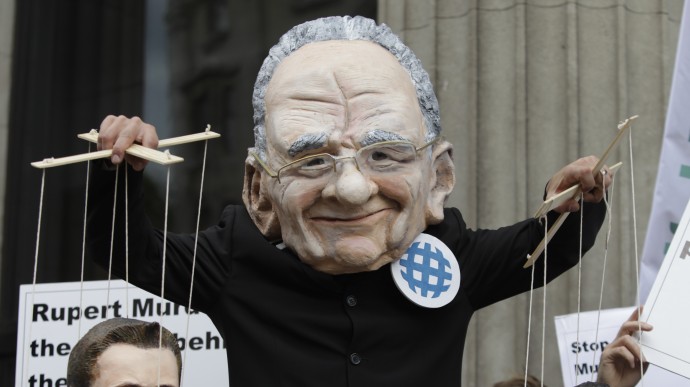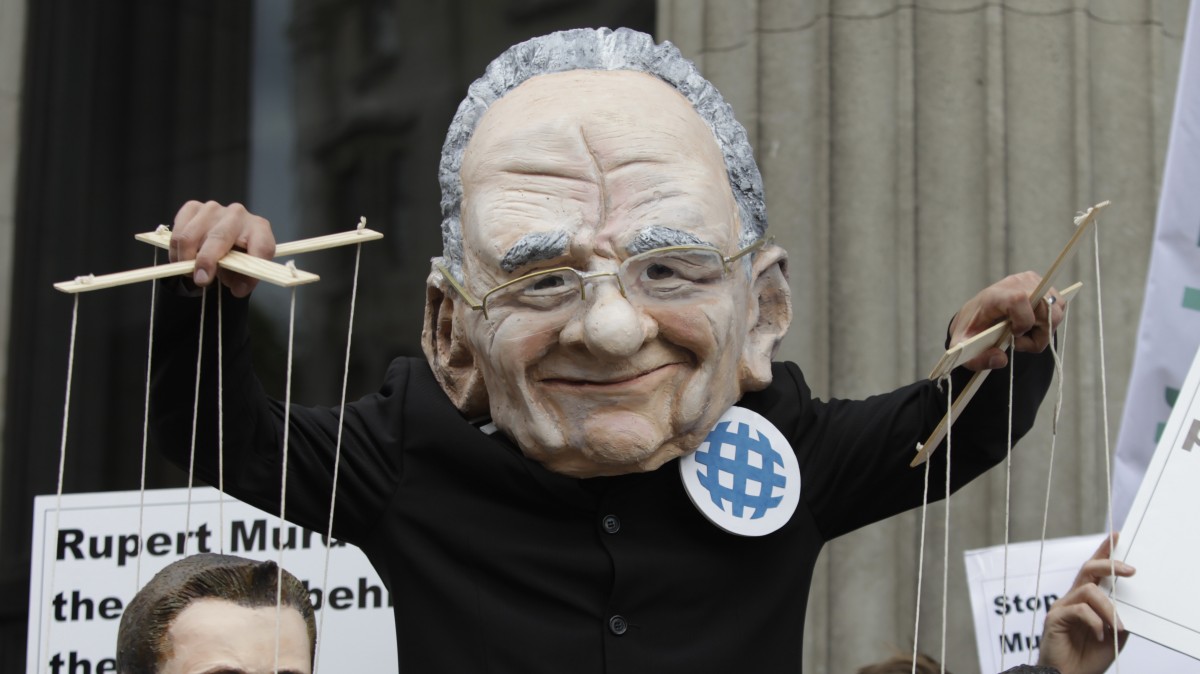
(MintPress) – With 90 percent of U.S. media already consolidated in the hands of six companies, the Federal Communications Commission (FCC) is moving forward with a proposal to relax its media ownership rules to a greater degree, creating opportunities for large media outlets to buy out more of the market.
The proposal considered by the FCC would roll back regulations implemented 30 years ago that prohibited broadcast outlets from purchasing newspaper companies within the same market — rules that were put in place to uphold freedom of the press, only truly achieved through freedom in the press market.
Now, the argument in favor of the rollback points to the emergence of digital media, which FCC chairman Julius Genachowski claims has hurt the news industry’s bottom line, in both broadcast and print.
To remedy this, Genachowski argues the ban must be lifted in the top 20 American markets in order to allow media outlets an opportunity to flourish financially.
But as Free Press Journalism and Public Media Campaign Director Josh Stearns tells MintPress News, that’s not necessary, as the FCC already grants waivers for media outlets to do just that, so long as they provide proof they’re not likely to survive without the opportunity for cross-market consolidation.
“There is no real reason to change this,” Stearns said, citing the existing waiver policy — unless you’re Rupert Murdoch.
Murdoch, the owner of News Corp., has had his eye on the Los Angeles Times and the Chicago Tribune for some time. There’s just one problem — his company owns broadcast stations in both markets, which, under current rules, disallows News Corp. from completing the transaction.
News Corp., which closed its British tabloid News of the World in 2011 after a phone hacking scandal, has been the only top-six media company that has actively lobbied the FCC for the rule change. According to Stearns, its lobbyists visited the FCC just weeks ago.
Lack of transparency in FCC highlights concern
The process by which the FCC has operated its consideration of the rule relaxation has lacked transparency, with Genachowski refusing to open discussions to the public, as required. The FCC has not provided full details of the rule change proposal — and it’s expected that Genachowski will sign off on the rule change outside of public view. He was expected to vote on the matter during a December meeting, which didn’t happen, opening up speculation.
“Genachowski is (also) pushing for a vote on the item behind closed doors, despite the president’s instruction to rulemaking agencies to conduct any significant business in open meetings with opportunities for members of the public to have their voices heard,” Free Press CEO Craig Aaron said in a statement.
This, despite support from 60 members and of Congress and 40 civil rights leaders urging for transparency in the process.
“Under Chairman Julius Genachowski, the FCC’s push for more harmful media consolidation has been anything but transparent,” Aaron said. “The FCC’s latest attempt to sugarcoat its bitter media consolidation pill is not going to fool anyone.”
There’s concern among members of Congress that the move violated a Third Circuit Court of Appeals ruling that mandated the FCC to study the impact any rule changes would have on the ability for women and minorities to have a stake in media ownership.
“The message from Capitol Hill to the FCC is simple and clear: Stop it. Stop the rush for more media consolidation. Stop delaying the much-needed studies on how the rule changes would affect ownership diversity. Stop ignoring the impact on women and people of color. Stop putting the interests of Rupert Murdoch ahead of the 99 percent of the public that opposes these changes. Stop thwarting the will of Congress and the courts,” Aaron said in a statement.
Ethnic and racial minority ownership of television and radio commercial broadcast licenses account for just 3.6 percent of the overall picture — women own just 7 percent. This does not represent the diversity in America, as 2010 Census data indicates ethnic and racial minorities make up 36.3 percent of the population. Women account for more than half of the overall U.S. population, representing 50.8 percent in 2011.
“The FCC has a full responsibility to fully analyze how this proposed rule change will affect the communities who have been denied an ownership stake in our media system for far too long,” a letter from members of Congress to Genachowski states. “We use the FCC to conduct the thoughtful and thorough analysis this question deserves before moving forward with a rule change that could have a detrimental impact on ownership diversity.”
The FCC did open a public comment period for 30 days, but it still falls short of the full requests, as it has yet to release the agenda to the public.
In 2007, Congress was confronted with a similar case involving the FCC — one that was rejected by the Senate and the federal appeals court. President Barack Obama, then-Sen. Obama, led the movement in opposition of the rule change.
“For too long now, the FCC has been putting corporate interests ahead of the people’s interests. It’s time for that to change. We will keep fighting until we have a free and open media that represents every American in our diverse nation,” Barack Obama, then a senator from Illinois, wrote in 2007.
Media and democracy
Reader Supported News writer Carl Gibson points out, roughly 230 executives of the six companies that own the airwaves call the shots for their viewers, which amount to 277 million Americans. That’s without the relaxation of FCC rules allowing more broadcast and newspaper companies to merge.
“In a functioning democracy, the media is the people’s voice, and the entity responsible for holding power accountable,” Gibson wrote in May. “Without a free media fairly scrutinizing the decisions of political and economic power brokers and bringing important events to light, elected officials and corporate CEOs would be corrupt and unaccountable to the people.”
As news outlets continue to grow under the umbrella of elitist ownership, the content of the news should always be in question. Historically, competition within the news industry leads to more outlets for the public, which creates more avenues for stories to be told — not just the stories selected by a few with special corporate interest.
As Stearns said, “Media consolidation never saves journalism.”
The role of the media is to serve as the watchdog of society, especially relating to the government. Consolidation threatens that very service necessary to a functioning democracy. Without an informed electorate — the news consumers — democracy cannot function in its truest capacity. While news outlets are businesses by definition, the product, which is the news, must be the driving force behind the operation if it is to fulfill its role in democracy. Operating on a basis of profit-only, especially in a monopoly, hurts the entire democracy of a nation.
And while arguments in favor of the relaxed laws state that the economic well-being of the news industry as a whole is at stake, that’s not the case, according to Stearns. And, if that truly was the case, media outlets could fall back on the FCC hardship waiver.
If the measure does pass the FCC, which is expected to occur, News Corp. will benefit through the purchase of the LA Times and Chicago Tribune. The consumers of media in Chicago and Los Angeles, arguably, will not.


